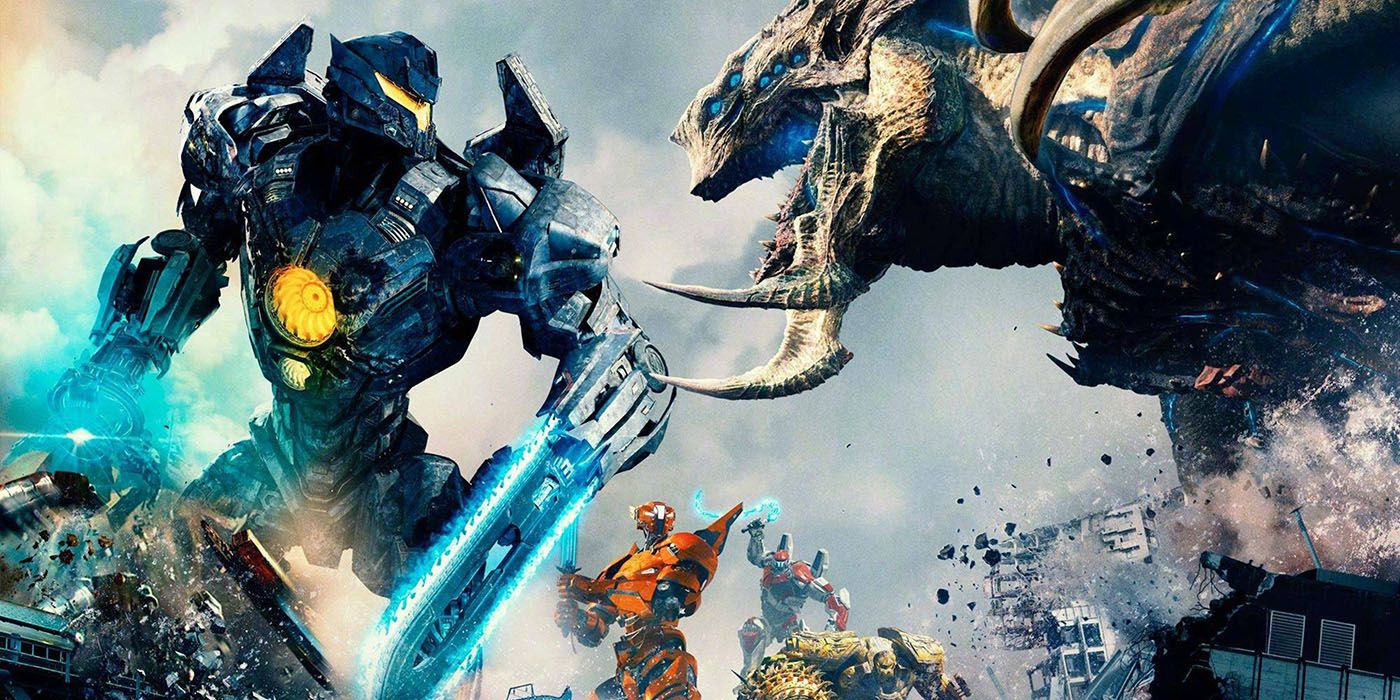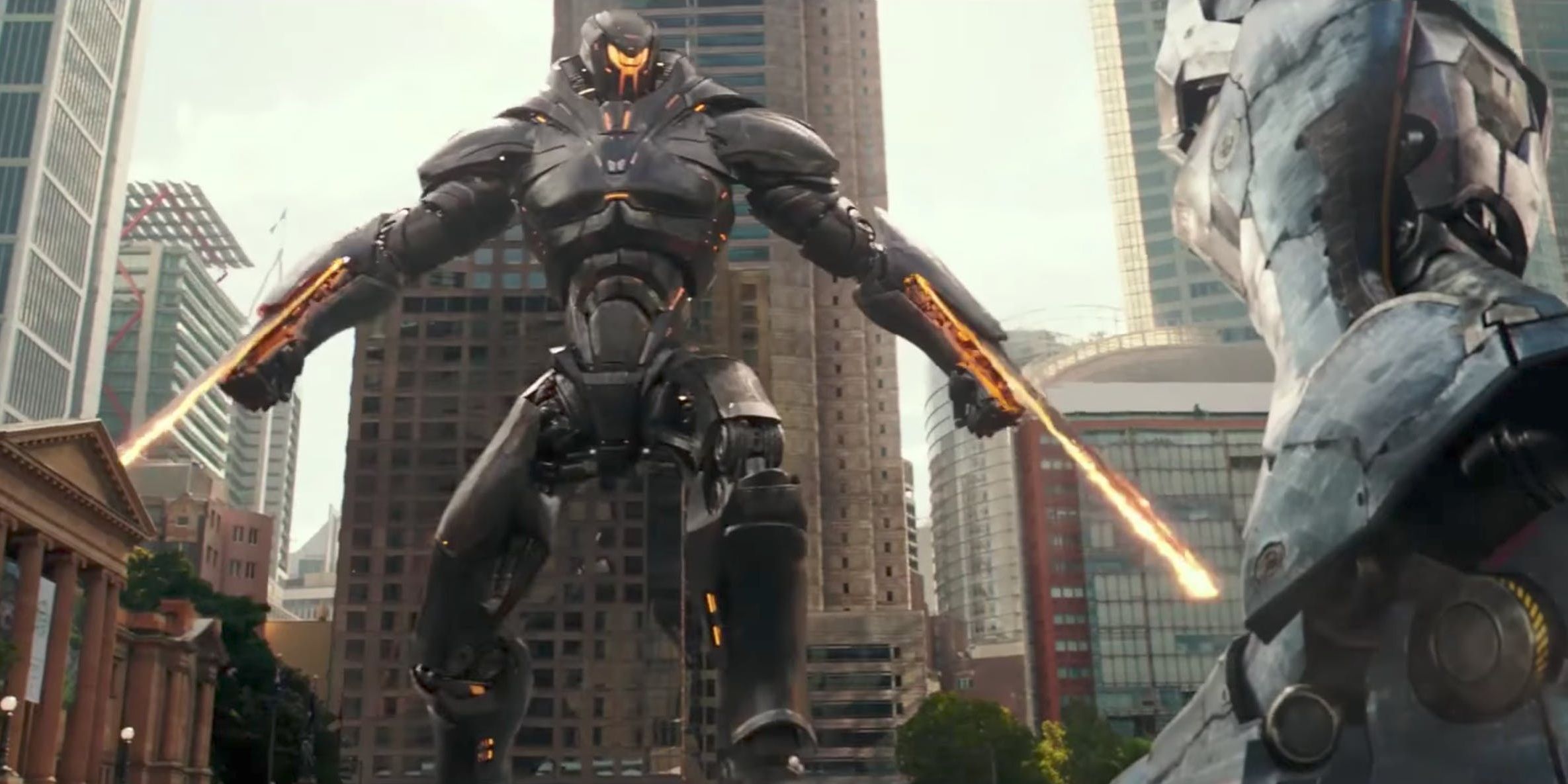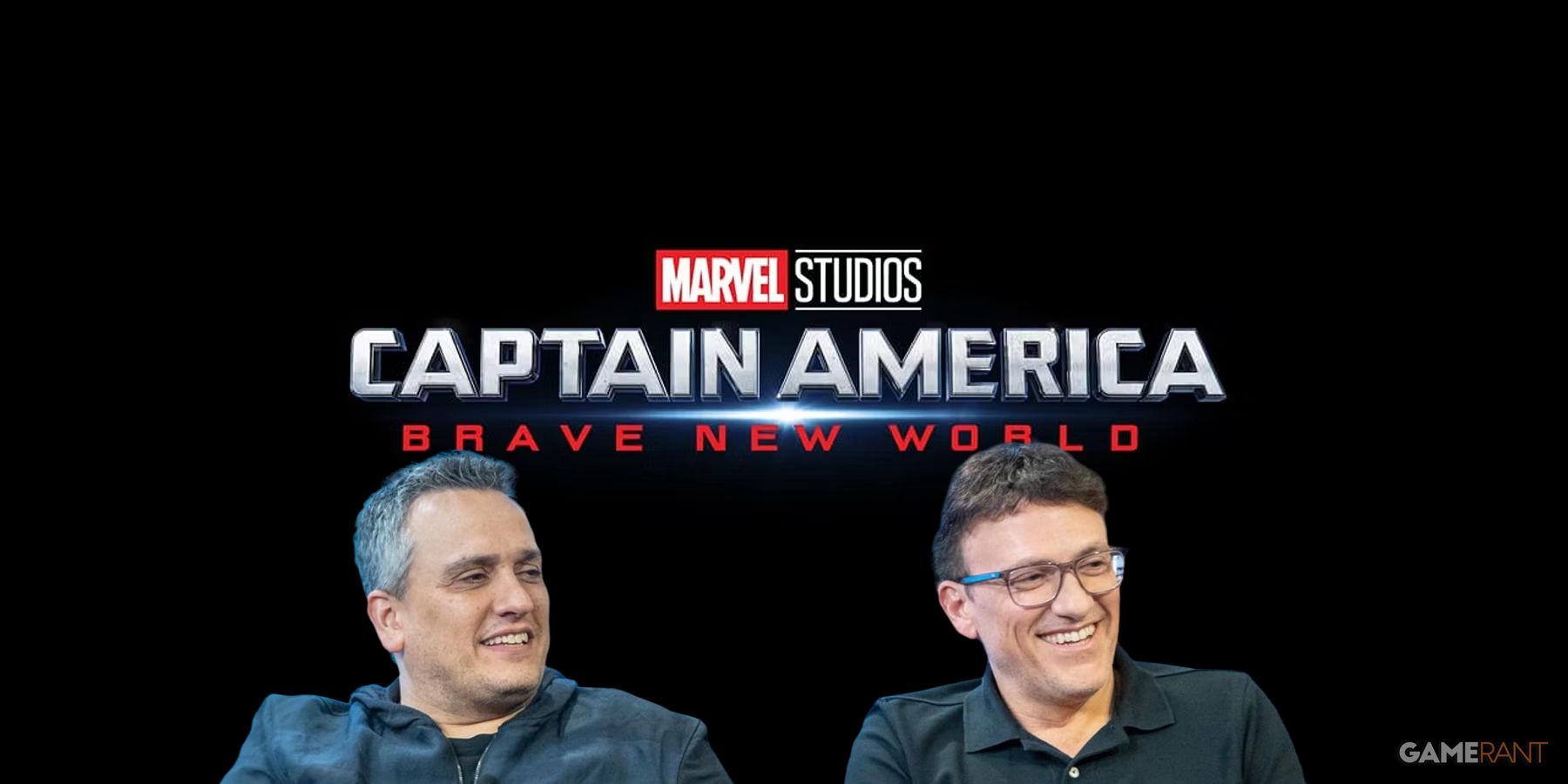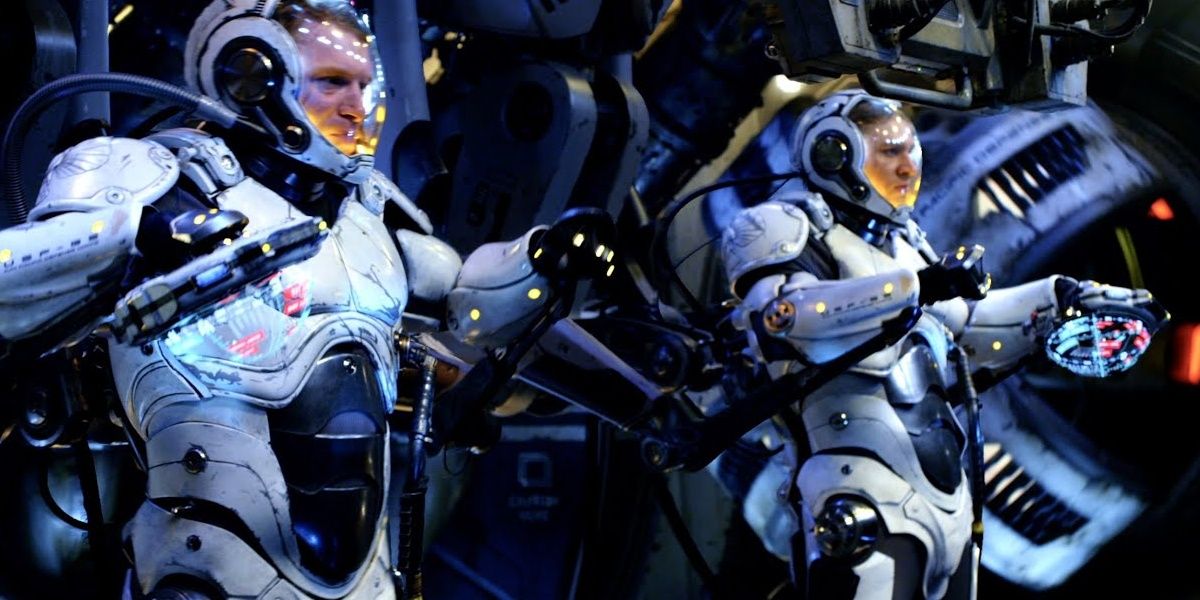Some concepts are hard-wired for the medium they debuted in. Movie studios make endless efforts to bring profitable concepts from books, TV, video games, or cartoons into their revenue streams, but they can't always solve that puzzle. Despite regular failures, IP-holders rarely give up on a theoretically fun idea. That persistence raises questions when fans see an untapped market. Hollywood loves CGI-driven epic blockbusters, so why don't they make a good mecha movie?
Superheroes are gradually falling from their once-secure place atop pop culture. Every year since Avengers: Endgame hit theaters has suggested diminishing returns for the genre. Outsider blockbusters like Oppenheimer, Barbie, and this year's Dune: Part Two have demonstrated the general audience's desire for something new. Hollywood insiders are climbing over each other to find the new phenomenon. Historical biopics, toy adaptations, video game movies, or sweeping sci-fi epics might overwhelm the box office next year. Hollywood might enjoy another potential option.

Why Aren't There More Giant Robot Movies?
Mecha is one of the most popular genre in anime, yet you could count the number of giant robot films on one hand. What's getting lost in translation?
Mech fiction is big in anime and video games
Mecha is a science fiction subgenre that became iconic in several mediums. The term evolved from a Japanese truncation of the English word "mechanism" or "mechanical." The concept is broadly understood worldwide as gigantic humanoid or animalistic robots, usually piloted by one or several people. It's a subgenre defined by its central technological innovation, but endless permutations spring forth from its core concept. Some draw very narrow borders around what can or can't be mecha, while others use the descriptor for any giant robot. Every aspect of the mecha subgenre is modular, allowing endless creativity within its borders. Anime and video games have taken advantage of the concept to explore an absurd variety of tones, genres, and presentations. Movies have not been as experimental.
Hollywood hasn't cracked a mech story
Stuart Gordon's 1990 cult classic Robot Jox is one of few Hollywood efforts that feels like a textbook mecha story. It depicts a post-apocalyptic world in which corporate disputes are settled in gladiatorial mech battles. The film suffered a creative clash between Gordon and sci-fi author Joe Haldeman, who wrote the script. It embodies many fascinating snags on the mecha genre in Hollywood. There are very few other American movies as committed to the concept. Several other blockbusters feature giant robots. Avatar put its villains in off-brand Gundam units. Power Rangers translates the classic Zords into modern cinema. Many iterations of Godzilla feature Mechagodzilla. The Marvel Cinematic Universe has the Hulkbuster armor. Aliens has a Power Loader. These examples may borrow from the mecha genre but don't operate within it.
Pacific Rim is the exception
Guillermo del Toro's 2013 epic Pacific Rim should have been the catalyst for the mecha revolution. It's everything that blockbuster budgets, radical creativity, and decades of mecha source material yearned to put on the big screen. While it inarguably captures the scale and impact of its towering machines, the film also nails the subgenre's traditional storytelling elements. Del Toro embeds character growth in mechanical laws, inventing the Drift system to force his characters to learn the power of teamwork through psychic shock. It's the perfect successor to Robot Jox. It's a much better film in every conceivable way and several steps deeper into the mecha movie pool. Unfortunately, no one has dared to replicate del Toro's success.
Why are Mech stories so hard to tell?
The Avengers arrived the year before Pacific Rim, cementing the superhero cinematic universe as the flavor of the decade. The Force Awakens dropped two years after it, guaranteeing an onslaught of legacy sequels, remakes, and endless franchise filmmaking. Surely, these two trends would fit with a mecha movement in Hollywood. Unfortunately, mecha carries the stain of anime. Hollywood has a rough relationship with Japanese animation. They'd kill to get their hands on Demon Slayer's box office take, but every time they touch a beloved anime, the fans tear them apart. They're too afraid to reach for the IP and turn Gundam or Battletech into a feature film. They're also too scared to craft a new narrative without a marketable name attached. Hollywood allows occasional references or anime-inspired moments, but the current studio system can't operate fully in the mecha subgenre.
Ultimately, the only likely path toward mecha movies is a long way away. Fans must wait for dedicated, imaginative filmmakers like Guillermo del Toro to find inspiration in the mecha stories they love. Alternatively, new voices could storm into corporate offices to demand the rights to make the Gurren Lagann movie of their dreams like Denis Villeneuve did with Dune. Either way, it's up to filmmakers to find the joy, awe, and entertainment value in the mecha genre before they can deliver it to an eager audience. Mecha won't overtake superheroes anytime soon but keep watching the horizon. Those giant robots will be hard to miss when they get here.

Why Did Guillermo del Toro Step Away From Pacific Rim 2?
The writer/director/producer extraordinaire revealed the reasons why he did not direct the sequel to his 2013 monster movie.


